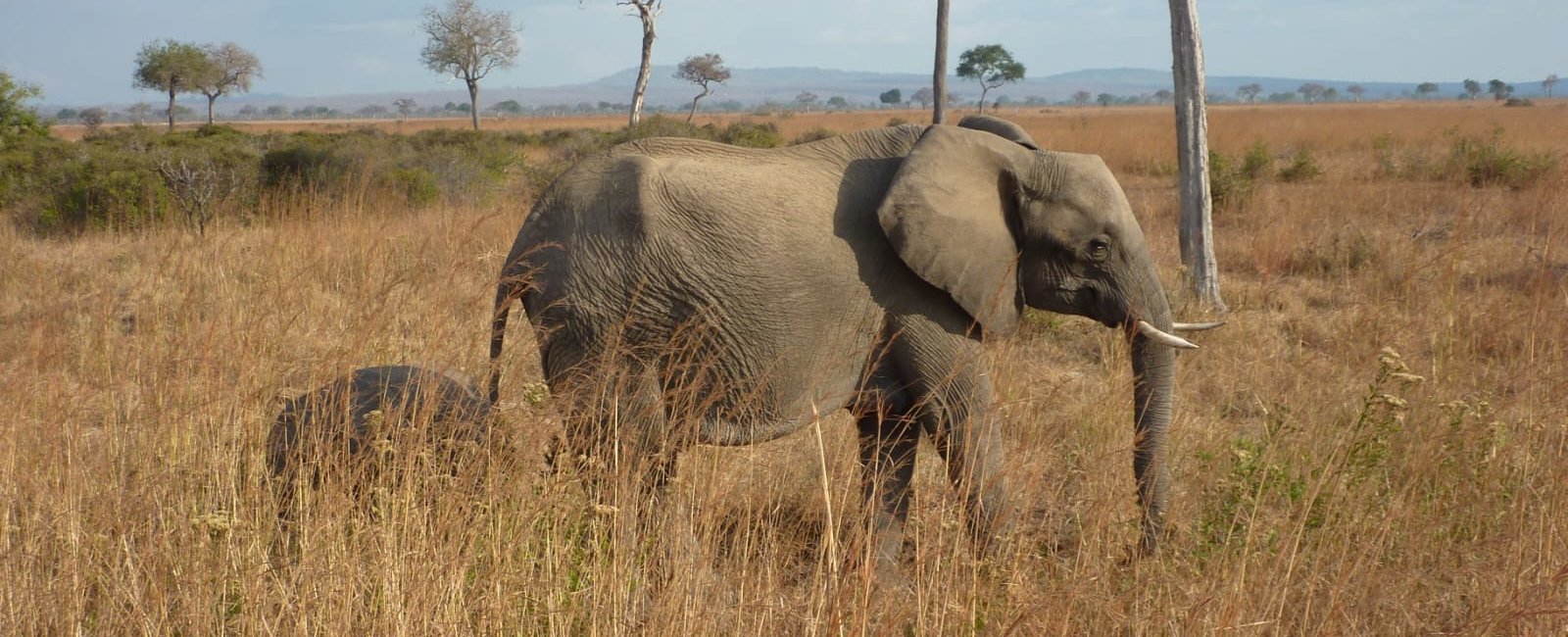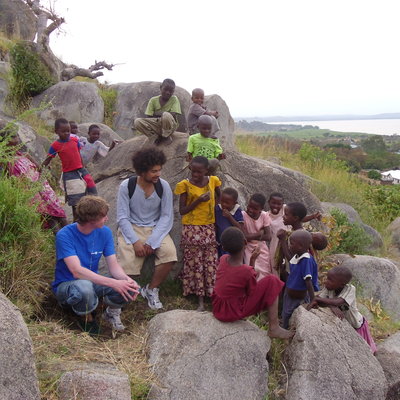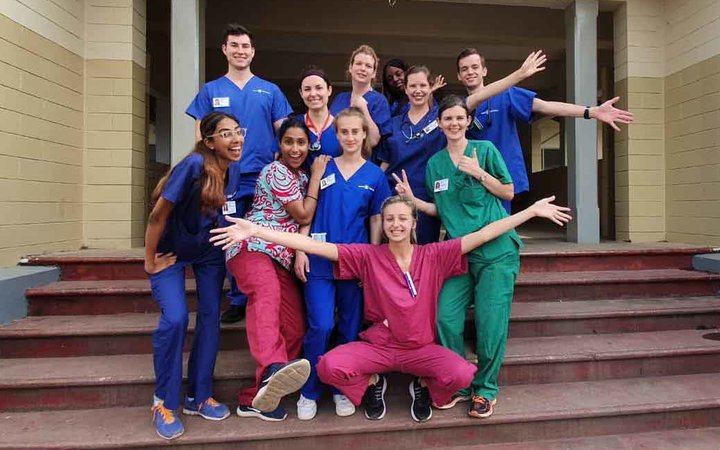Abigail travelled to Dar es Salaam in Tanzania in 2013 at the end of her nursing degree at Anglia Ruskin University.
There, she spent four weeks learning about the difficulties of delivering midwifery in a low-resource setting. Abigail is now a registered midwife who champions the community of carer model and runs a private complementary therapy business. We caught up with Abigail to discover how her experience overseas influenced the decisions that led to where she is today.
Early on in my studies, I knew I wanted to get a job in healthcare. I was young and had many ideas, but I hadn’t decided which healthcare area to aim for. Then, during secondary school, I attended a career workshop that changed everything. From the moment I learned about midwifery, it was all I wanted to do. I knew then and there that I was going to be a midwife.
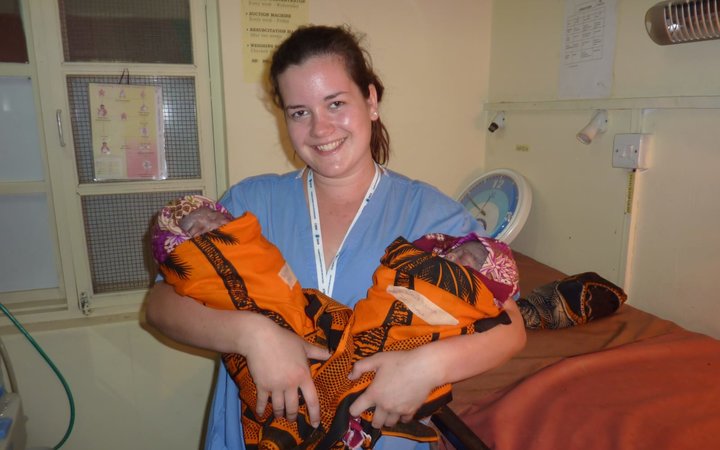
It wasn’t until the end of the third year of my degree that I travelled to Tanzania with Work the World. At university, an elective was the last thing we did. I don’t know if things are different now, but that’s how it was. Once I had completed all my training and assignments, the university prompted us to look into where we might do an elective.
I can’t remember who it was, but someone mentioned that it was possible to do an elective abroad. So, one of my uni friends and I decided that we were going to go and do something adventurous. It was a one-off opportunity to do something different before we started working. We hadn’t had the travel experiences that lots of our peers had, but the chance to do just that was now laid out in front of us. We felt we’d be silly not to.
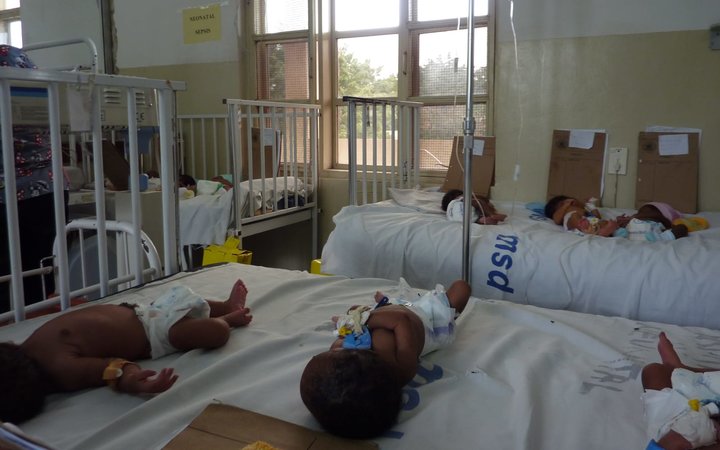
We researched overseas electives and decided quickly that we didn’t want to organise one ourselves. We had heard that things had gone wrong for other students who had tried—there’s no safety net if something like that happens. We found Work the World and were immediately confident in them. All we had to do from that point was decide which destinations we wanted to get experience in.
We knew we wanted it to differ from what we had experienced in the UK. We wanted to go somewhere that would show us barebones midwifery, and Dar es Salaam in Tanzania seemed to tick all the boxes. We were right because it was clear from the moment we arrived that there were stark differences between midwifery in the UK and Tanzania.
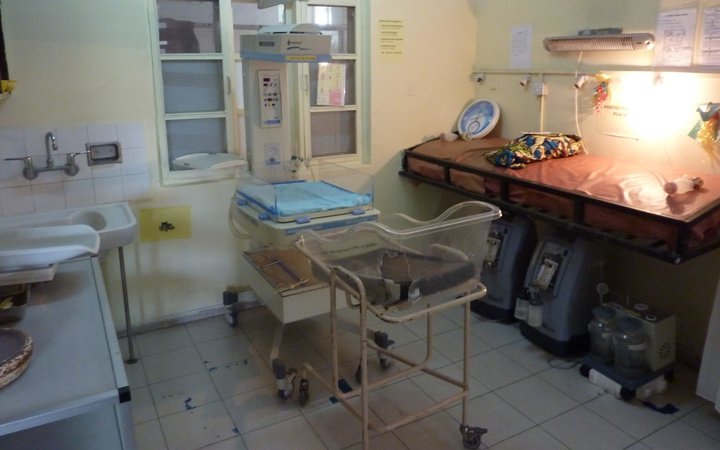
Walking into our placement hospital for the first time was surreal. We had seen photos and reassuring preparatory calls with staff in Work the World’s head office, but you never really know what it will be like until you’re standing there on the wards. The first thing that struck me was the volume of patients all packed into one space, spilling out of the doors. We saw as many as six women sitting on one bed, with more surrounding it on the floor, waiting for their rest.
It wasn’t just beds that were lacking. Resources, in general, were scarce. It was such a contrast to the standardised, regimented way we did things in the NHS. One example is how we run antenatal clinics — your name is called, and you get your checks done one by one, and then the next woman is invited in. But there was no such system in our placement hospital in Dar es Salaam. Staff would examine the women who approached them, “Can you check me?” and checks were done then and there.
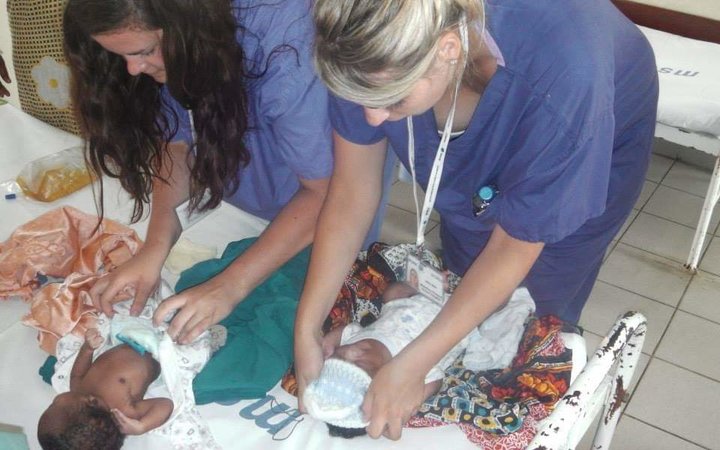
The hospital staff had a laid-back attitude regarding hands-on care with women. In the NHS, staff would rush around, mainly based on the number of women in the clinic. But there wasn't the same sense of urgency in our placement hospital in Dar es Salaam. The staff in the Work the World house explained that this resulted from a difference in culture.
The experience changed my view of midwifery and set me on the path to where I am today.
I was lucky that I had a job waiting for me when I returned to the UK. I was waiting for my midwifery registration to come through before I could start. The fact that I did my placement in Tanzania at the very end of my degree meant that I was effectively doing it with the skills of a qualified midwife.
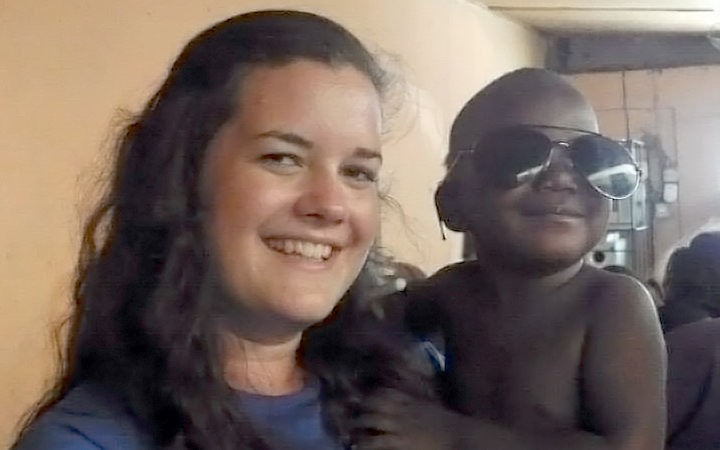
Looking back, my experience overseas put me in a good headspace and prepared me for the NHS job I was about to enter back in the UK. In Tanzania, I learned so much about natural, physical midwifery skills that I didn’t rely on all the fancy modern equipment. Seeing how strong the women were even though they had neither pain relief nor a birth partner was a real eye-opener, too. But there they were, birthing their babies with no complaints.
When I returned to the UK and started work in September, I was still waiting for my midwifery registration — I was working as a maternity care assistant until it arrived. I was on the antenatal ward, and women were being induced or in early labour, coming to the office asking for pain relief and other comforts that we take for granted in the NHS.
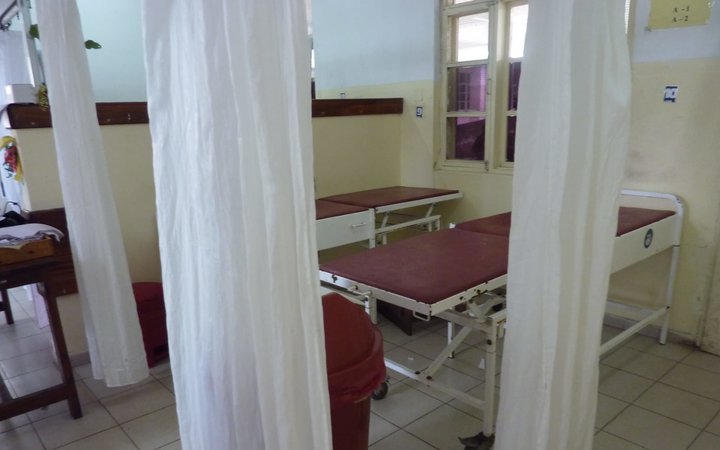
I remember thinking, "I’ve just come from this place where the women are doing things independently." At that point, I realised that my whole perspective had changed. I came to understand how lucky we are to have access to the things we do for free at the point of delivery.
After my registration arrived, I did rotational work throughout the hospital departments and wards. That was my first year, and then I settled on the labour ward, where I provided more high-risk care. I also took a course on critically ill obstetric patients, where I learned to manage many complications. This led me to stay on the labour ward for a bit longer, and it helped me consolidate my skills.
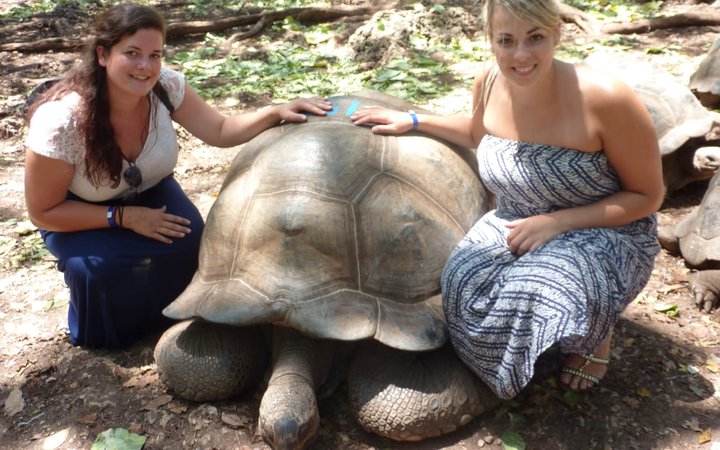
I then became a labour ward coordinator for a secondment period of about eighteen months. Being in charge of the labour ward was a great experience, and I felt ready, having been qualified for four or five years at that point. But after a while, I wondered if the labour ward was where I wanted to spend the rest of my career.
There were still plenty of things I hadn’t done as a qualified midwife, so I decided to go to an assessment unit, a kind of high-risk antenatal triage unit. Around the same time, an opportunity arose for me to start a pilot scheme under the continuity of carer model (a way of ensuring each woman gets dedicated support from the same midwifery team throughout their pregnancy).
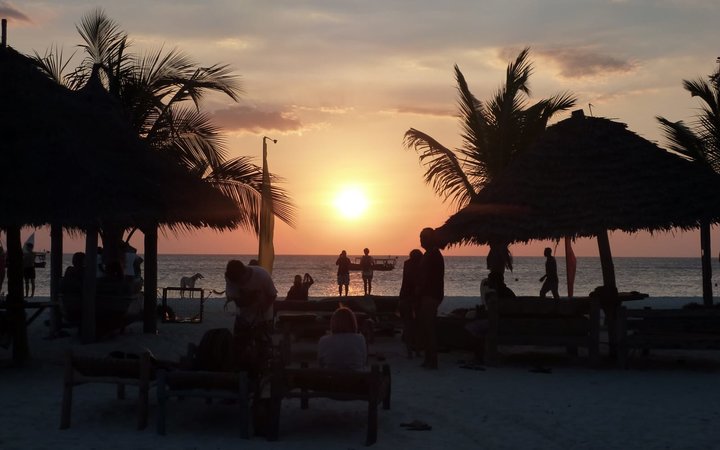
I hadn’t done much community midwifery, but I knew from my time as a student that the gold standard would be to have my own caseload of women whom I cared for throughout the antenatal and postnatal period. This was really appealing, so I built up a caseload, and I’ve been doing that for four years.
Outside of my NHS practice, I run a business called Flourish. I provide complementary therapies to pregnant women. I currently offer aromatherapy and massage and am completing a diploma that will allow me to deliver clinical hypnosis and reflexology. My NHS trust might want to implement these complementary therapies, so I'll be in a great position to help push this through and start trialling them.
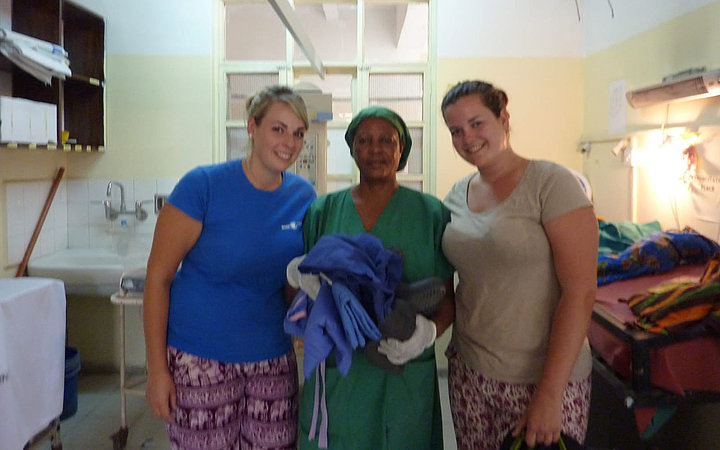
I can trace so much of where I am today back to my midwifery elective experience in Tanzania. I'm sure I wouldn't have made some of my choices without the significant perspective shift from seeing what labouring women and hospital staff had to contend with in Dar es Salaam.
The most important thing to remember if you’re considering doing your elective overseas is that Work the World will have your back the entire time. I would urge anyone to do it if they’ve got the opportunity.
Discover more about our Electives in Africa. You'll find various unique destinations offering eye-opening clinical experiences and adventures.

Next steps
Choose a Destination
Start dreaming up your own once-in-a-lifetime overseas medical placement experience today.
Start dreaming up your own once-in-a-lifetime overseas medical placement experience today.
